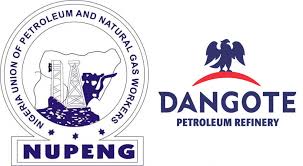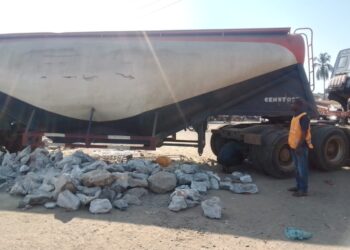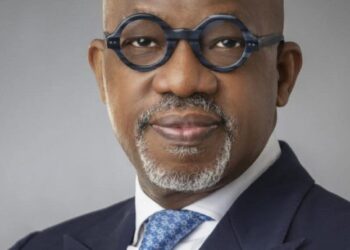The management of Dangote Refinery and Petrochemicals has agreed to the unionisation of its employees, paving the way for an amicable resolution of a dispute that recently led to a strike by the National Union of Petroleum and Natural Gas Workers (NUPENG).
According to a Memorandum of Understanding (MoU) signed on Thursday, staff members of both Dangote Refinery and Dangote Petrochemicals who wish to unionise will be allowed to do so without interference. The unionisation process is expected to begin immediately and be concluded between September 9 and 22, 2025. The agreement also stipulates that the employer will not establish any alternative union to undermine the process, and no employee will be victimised for participating.

In line with the agreement, NUPENG suspended its industrial action with immediate effect, while all parties are scheduled to report back to the Minister of Labour and Employment a week after the exercise is completed.
Officials present at the signing included representatives of the Nigerian Midstream and Downstream Petroleum Regulatory Authority (NMDPRA), the Dangote Group, and other stakeholders.
The MoU was signed on behalf of management by Sayyu Dantata, Managing Director of Dangote Group; O.K. Ukoha for NMDPRA; and Ojimba Jibrin for Dangote Group.
Labour representatives who signed included Benson Upah for the Nigeria Labour Congress (NLC), N.A. Toro for the Trade Union Congress (TUC), NUPENG President Akporeha Williams, and the union’s General Secretary, Afolabi Olawale. The Federal Ministry of Labour and Employment was represented by Amos Falonipe, Director of Trade Union Services & Industrial Relations, who signed on behalf of the Minister.
The strike action, which began on Monday, was triggered by NUPENG’s allegation that Dangote Refinery was hiring new drivers on the condition that they abstain from joining the union — an accusation the company dismissed as “cheap blackmail.”
Commissioned last year, the 650,000-barrels-per-day Dangote Refinery is Africa’s largest and was designed to reduce Nigeria’s dependence on imported petroleum products. While its operations have driven down petrol prices and reshaped the oil sector, the refinery’s dominance has sparked concerns over monopoly.
The company has also been working on deploying thousands of compressed natural gas (CNG)-powered trucks nationwide for petrol distribution, but delays in the initiative have created tension with over 20,000 diesel-powered tanker operators.
During the strike, Dangote Group’s spokesman, Anthony Chiejina, assured the public that “there is no fuel shortage; everything is going on,” emphasising that negotiations with the unions were still ongoing at the time.
You can get every of our news as soon as they drop on WhatsApp ...To get all news updates, Join our WhatsApp Group (Click Here)












